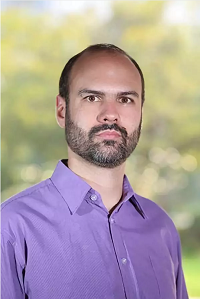Statistics Seminar (2019-24)
Title: Local and Global Behavior of the Subcritical Contact Process
Speaker: Leonardo T. Rolla, NYU Shanghai
Time: Thursday,November 14, 14:00-15:00
Place: Room 217, Guanghua Building 2
Abstract:
In this talk we will describe three fundamental objects assuming only elementary mathematical knowledge:
- Contact Process: it is a stochastic process that serves as a generic model for the propagation of a certain infection or rumor among a certain population. It is one of the simplest systems that exhibit a Phase Transition.
- Marked Poisson Point Process: it is a random process consisting of set of points on the space where each point carries extra information, for instance a color or perhaps something richer such as another random process.
- Quasi-Stationary Distribution: for a stochastic evolution that is doomed to become extinct, a QSD is a probability distribution which, although does not give a steady state for the process, is a steady state when conditioning on non-extinction.
We will then describe the Scaling Limit of the subcritical Contact Process in terms of a Marked Poisson Point Process and a Quasi-Stationary Distribution, and discuss the question of uniquness of the QSD in this and other contexts.
Based on joint works with E. Andjel, F. Ezanno and P. Groisman, with Aurelia Deshayes, and with F. Arrejoría and P. Groisman.
Introduction:

Leonardo T. Rolla is a Visiting Assistant Professor at NYU Shanghai. He is also an Associate Professor at the Argentinean National Research Council. He obtained the PhD in 2008 from IMPA, Rio de Janeiro, Brazil.
Rolla’s research interests are Random Spatial Processes. His work has appeared in Inventiones Mathematicae, Communications on Pure and Applied Mathematics, The Annals of Probability, Electronic Journal of Probability, SIAM Multiscale Modeling and Simulation, Stochastic Processes and their Applications, Journal of Statistical Physics, among others. Rolla has obtained fellowships from the Foundation Sciences Mathématiques de Paris in 2008 and the Excellence Postdoctorate from IMPA in 2010.
Your participation is warmly welcomed!